About the Prevention Partners legacy website: Data AnyWare is bringing this content from Prevention Partners to the web in appreciation of their patronage for nearly a decade and, moreover, their contribution to the health and well-being of people throughout the country.
Welcome to Prevention Partners Legacy Website. This site shares history from 20 years of mobilizing leaders to establish healthy policies, environments and systems that support healthy people. We are pleased to provide access to enduring prevention tools, articles, reports and data that were developed to guide leaders to build healthy places. We thank the many leaders and partners who created transformational change and have left a legacy of better health across their organizations, communities, state, region and nation. We hope this information informs and inspires future prevention initiatives.

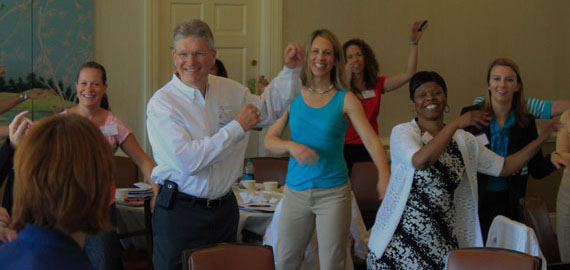
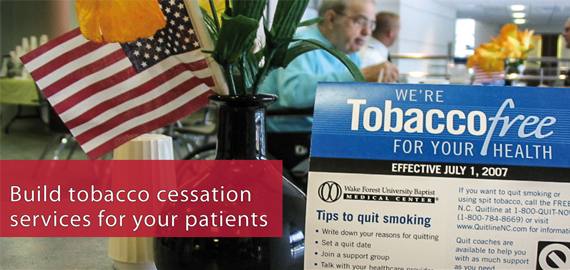
Prevention Partners Leadership Reflections
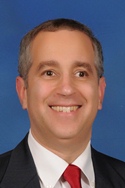 Gregg Stave
Gregg StaveBoard Chair
Moving science to action requires leadership
More than half of cancers and heart disease related deaths are caused by tobacco, inappropriate nutrition, insufficient physical activity, and obesity. These health behaviors are often thought of as the responsibility of individuals. However, behavior change is made easier when supported by policies, culture, and environments. For example, we know that smokers make more quit attempts and have greater success in quitting if they work in tobacco-free environments.
Perhaps the most notable early accomplishment for Prevention Partners was assisting North Carolina acute care hospitals to address tobacco. In collaboration with the NC Hospital Association and with support from The Duke Endowment, North Carolina became the first state in the nation to have all acute care hospitals voluntarily adopt tobacco-free campus policies. This was followed by a similar process that led hospitals to adopt healthy food environment policies.
From these experiences, Prevention Partners developed evidence-based tools, LearnHealthy America℠, WorkHealthy America℠, and WorkHealthy Global℠ that were used by schools, hospitals, corporations, and governments to support people in living healthier lives. At their peak, these tools were used by more than 900 organizations in more than 30 states and at many sites around the globe.
Great thanks to all of the funders, supporters, board members, and partners who have enabled the success of Prevention Partners. And a special thank you to the incredible staff, interns, and fellows of Prevention Partners who made the impossible happen every day.
I would also like to recognize the critical contributions of two people. Meg Molloy envisioned an organization that could improve health through prevention and then created and led that organization for 20 years. Her leadership and strategic focus led to the development of healthy places beginning in North Carolina and stretching around the world, improving the lives of millions. Peg O’Connell served as the founding Board Chair and generously provided leadership, passion, and a can-do attitude.
It has been an honor and privilege to serve this extraordinary organization.
Gregg Stave
Board Chair
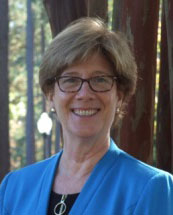 Meg Molloy
Meg MolloyPresident and CEO
Believing in Prevention is Believing in the Future
I am very fortunate to have worked for the past 20 years alongside visionary and courageous change-makers to make what appeared to be impossible become a reality. When you tackle a complex set of issues, translate science into a change model for the first time, and there are political and institutional forces that oppose change, you get things right, and you get things wrong. Both advance your work.
I thank the many board members and funders for the freedom and support to create new models and to cultivate meaningful partnerships for healthy change. In particular, I thank our long serving board chairs – Peg O’Connell and Dr. Gregg Stave whose passion for this work has inspired and supported me and so many others. Your confidence in our mission and team as we went into new territories enabled us to develop a bold vision, and learn and grow from our mistakes and our successes and create first generation change models that others have learned from and adopted. I thank the many leaders and partners who stepped forward to help us develop and bring the best science and tools to our communities, and for being willing to go into risky waters to do something that had never been done before.
I thank each team member of the remarkable staff, interns and loaned executives who brought different strengths to fund, build, package, deliver and measure the impact of complex change processes. I am still amazed that a small group of public health change agents accomplished so many firsts in the nation, including building software that scaled healthy change across NC, the nation and the globe, and created strong outcome metrics reflecting organizational and community change. I will always appreciate the strong supportive work culture and teamwork we shared, and the high standards that each of you brought to your work, your team, and the organization.
We set out to expand prevention policies and practices that are common sense and are backed up by enormous scientific evidence, but are unfortunately far from the norm. Our work would not have been successful if innovators and early adopters had not been willing to step forward: health insurers to cover preventive insurance benefits, restaurants that offer healthy food, clinics that prioritize preventing illness, hospitals and workplaces that are tobacco-free, serve healthy food, establish mother’s rooms, access to time and places for physical activity, and supports for psychosocial health and well-being. I am pleased that many other nonprofits, governmental agencies, and foundations have taken up this work, and will continue to advance healthier places. We accomplished much together and are leaving a strong legacy for a healthier NC, and healthy places across the nation and globe.
The work of prevention is far from finished. Twenty years ago we began with the mission: “Putting prevention first for a healthier NC”. Ten years later the mission evolved to “Healthy Places Change Lives”. There is still much to be done in building healthier communities, for access and health equity to reach all members of the community. Our experiences and selected resources are shared in this Legacy website. I hope they are helpful to others who wish to put prevention first and build healthy places.
To our healthier future,
Meg Molloy
President and CEO
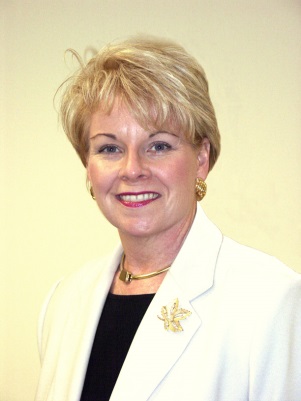 Peg O'Connell
Peg O'ConnellFounding Board Chair
Where the disease is worst, the cure shall be found
There is a principle in pharmacology that states “where there is the greatest disease, you will also find the cure.” An example of this is that the basis for aspirin was found in the forests of northern Europe where people suffered the most from the aches, pains and diseases caused by cold weather and long winters.
In many ways this was the principle underlying the work of Prevention Partners.
Twenty years ago, North Carolina suffered from an enormous amount of disease attributable to tobacco use, poor nutrition and lack of physical activity. We were spending a fortune on treating the heart disease, cancers and diabetes caused by these three behaviors and our state consistently ranked poorly for the health of our people. We had the greatest burden of chronic disease in North Carolina, so it was incumbent upon those of us who believed in prevention to seek a cure — or at least make substantial progress toward alleviating the burden of preventable disease and disability. In the last twenty years, with Prevention Partners helping to lead the way, we have made major steps toward that goal. This website is a testament to that vision and the progress that has been made.
I have written many letters about and for Prevention Partners over these 20 years. This is one letter that I wish I did not have to write — a letter summarizing the legacy of a cutting edge, forward leaning organization committed to improving the health and well-being of the people of our state, our nation and even across the globe. Prevention Partners has made a real difference in the lives of so many people and I am proud to have been involved in some small way in the legacy we have created. Thank you to Dr. Meg Molloy, the great Prevention Partners staff, a varied and visionary board of directors and to all our partners, public and private. We may not have found the total cure, but we have left our world a little better than we found it - and that is all you can ever ask.
Peg O'Connell
Founding Board Chair
